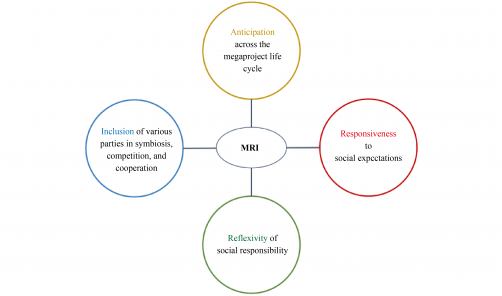URGENT UPDATE: A groundbreaking study titled “Megaproject Responsible Innovation: Concept, Framework, and Governance” has just been released, proposing a revolutionary framework for managing innovation in megaprojects. Conducted by a team of scholars from Nanjing Audit University, Guangzhou University, Ningbo University of Finance and Economics, and Western Sydney University, this research aims to address critical challenges that hinder sustainable development in large-scale projects.
This innovative framework addresses the pressing issues of technological complexity, communication failures, and social responsibility that often plague megaprojects. Without proper management, these challenges can lead to significant uncertainties and crises, impacting not only projects but the broader society as well.
The study introduces the concept of megaproject responsible innovation (MRI) and outlines a four-dimensional framework designed to overcome current barriers. The dimensions include:
1. **Anticipation Across the Megaproject Life Cycle**: This involves assessing the impacts of innovation early on to prevent adverse outcomes down the line.
2. **Inclusion of Various Parties**: Engaging experts, the public, and policymakers ensures that innovation aligns with social expectations.
3. **Reflexivity of Social Responsibility**: Innovators are urged to reflect continuously on their assumptions and processes to maintain ethical standards.
4. **Responsiveness to Social Expectations**: This dimension allows for adjustments in innovation activities based on evolving societal values and needs.
Additionally, the researchers propose an ecological governance strategy that categorizes innovation ecosystem members into key niche members (owners, designers, contractors) and extended niche members (governments, research institutions, regulatory agencies). Different governance approaches are suggested based on the relationships among these members.
The study’s findings are backed by extensive theoretical analysis and case studies, including notable projects like the Hong Kong-Zhuhai-Macao Bridge and the Three Gorges Dam, which validate the MRI concept and its governance strategies.
This research not only fills a significant gap in existing literature by integrating social responsibility into megaproject innovation but also provides a crucial theoretical foundation for promoting sustainable development in this sector.
The paper is authored by Han Lin, Shangyao Nie, Pingping Wu, Ming Yuan, Mingchuan Yu, and Vivian Tam. For those interested in diving deeper, the full text of the open-access paper is available at https://doi.org/10.1007/s42524-025-4071-9.
As global economies evolve, the implications of this research are profound. It urges stakeholders to rethink their approaches to innovation in megaprojects, ensuring that these initiatives not only drive economic growth but also foster social good. The world will be watching how these frameworks are adopted and implemented in upcoming megaprojects.







